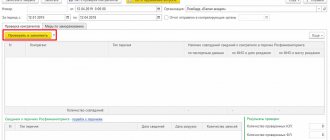What reports do pawn shops submit to the Central Bank of Russia?
The activities of pawnshops are controlled by the Central Bank of Russia. It adopts regulations within its competence, issues mandatory orders or conducts compliance checks. The department has the right to request documentation regarding any company or apply to the court with a request for its liquidation. The functions, regulation and supervision of the Central Bank in relation to pawnshops are established by Art. 2.3 196-FZ.
To obtain data on the business operations of a pawnshop, the Central Bank uses the Unified State Register of Legal Entities, Rosstat and other regulatory authorities. The information received is entered into the state register of pawnshops.
Also, organizations operating as a pawnshop independently transmit information about their activities to the Central Bank. Submission of reporting and the deadline for its submission is carried out in accordance with Art. 2.4 196-FZ and Directive of the Bank of Russia No. 3927-U. The following documents must be sent:
Reporting on pawnshop activities for the Central Bank
- for the first quarter, half a year, 9 months - no later than 23 working days after the end of the reporting period;
- twice at the end of the year - no later than 23 working days and no later than 90 calendar days after the end of the calendar year.
Reporting on the personnel of the governing bodies of the pawnshop for the Central Bank
It contains general information, basic and balance sheet indicators, weighted average values of the cost of consumer loans and information on monetary transactions. Submission is carried out using form 0420890. Reports are sent to the central bank:
In addition to general information about the pawnshop, the document contains information about the composition of the governing bodies and information about the responsible persons. The form is filled out according to form 0420891 and submitted to the central bank at the end of the calendar year or when there is a change in the management of the pawnshop. In both cases, the report must be submitted within 23 working days.
The above reports are provided through the personal account of the Central Bank. If you violate the deadline, then in accordance with Art. 19.7.3 of the Administrative Code, the organization will pay a fine in the amount of 500 to 700 thousand rubles.
Training accountants in the basics of anti-money laundering legislation
Currently, Rosfinmonitoring has prepared a project (Project ID 02/08/02-20/00099235) “On approval of the Regulations on the requirements for training and education of personnel of organizations engaged in business activities in the field of providing legal or accounting services...”. This project is a kind of instruction for accountants of companies providing legal or accounting services.
BLOCKING A BANK ACCOUNT AT THE INITIATIVE OF ROSFINMONITORING
What reports do pawnshops submit to Rosfinmonitoring?
Since pawnshops carry out transactions with funds, they are subject to 115-FZ. This law describes a mechanism for suppressing the financing of terrorism and legalization of proceeds from crime.
Art. 7 115-FZ obliges every pawnshop to identify its customers and inform the authorized body about them.
Pawnshops check clients and partners for violations and submit the following reports to Rosfinmonitoring:
- about monetary or property transactions subject to control;
- about suspicious transactions. If a pawnshop employee has reason to believe that these actions are being carried out to finance terrorism or launder illegal income;
- about the measures taken to freeze funds;
- on the results of checking the presence of violations among clients with information about the freezing of monetary transactions;
- about suspended operations;
- refusal to perform an operation;
- to cancel a previously made decision to refuse an operation.
The information is submitted within three working days after completing a monetary transaction and once every three months after checking clients. Data on suspended or suspicious procedures are transferred to Rosfinmonitoring immediately.
Fines for violations of reporting to Rosfinmonitoring are established by Art. 15.27 Code of Administrative Offenses of the Russian Federation.
Submitting reports on inspections or suspicious transactions within an unspecified period threatens the pawnshop with a warning or the imposition of an administrative fine in the amount of:
- from 10 thousand to 30 thousand rubles - for officials;
- from 50 thousand to 100 thousand rubles - for legal entities.
Submitting false information or failure to provide information about transactions to the authorized body shall entail the imposition of an administrative fine in the amount of:
- from 30 thousand to 50 thousand rubles - for officials;
- from 200 thousand to 400 thousand rubles or suspension of activities for up to 60 days - for legal entities.
Failure to provide Rosfinmonitoring with information about refusals to carry out operations is an administrative offense and faces a fine:
- from 30 thousand to 40 thousand rubles - from officials;
- from 300 thousand to 500 thousand rubles or administrative suspension of activities for up to 60 days - for legal entities.
Failure to submit to Rosfinmonitoring data on the movement of funds in customer accounts at the request of the department entails the imposition of an administrative fine in the amount of:
- from 30 thousand to 50 thousand rubles - for officials;
- from 300 thousand to 500 thousand rubles - for legal entities.
Individual entrepreneurs are liable for administrative violations as a legal entity.
Reporting is submitted through the personal account of the Financial Monitoring Service: portal.fedsfm.ru.
Internal control audit report
In accordance with clause 2.8 of the Regulation of the Bank of Russia dated December 15, 2014 N 445-P “On the requirements for the rules of internal control of non-bank financial organizations in order to combat the legalization (laundering) of proceeds from crime and the financing of terrorism” (hereinafter referred to as the Regulation Bank of Russia No. 445-P) NFOs are required to conduct inspections of internal control at least once a year to ensure compliance by the NFO and its employees with the legislation of the Russian Federation in the field of AML/CFT, ICR for AML/CFT.
The result of such an inspection will be a written report, which must contain information about all identified violations of the legislation of the Russian Federation in the field of AML/CFT, the rules of internal regulations for AML/CFT, as well as the measures taken based on the results of the inspections.
Compiling this report is a rather labor-intensive process, since it is necessary to analyze the organization’s activities in the field of AML/CFT for the period under review.
provides services for the preparation of this report. We will analyze the activities of your organization in the field of AML/CFT for the reporting period, and also make recommendations.
The cost of generating one report is from 3,100 rubles. Discounts available.
Order a report Get a consultation
Reports to the tax office
The pawnshop provides various information to the tax authority in person or through EDI operators. Let's consider each type of reporting separately.
Financial statements
Since 2022, pawnshops have been exempted from submitting annual financial statements to the Federal Tax Service and state statistics bodies. The changes are regulated by letter of the Ministry of Finance of Russia No. IS-accounting-12 dated December 13, 2018. Information is sent electronically for each calendar year to the Central Bank, no later than three months after the end of the reporting period.
Information on the average number of employees
This report is presented annually. Information on the average headcount for the previous calendar year is sent before January 20 of the current year. The newly created pawnshop sends data by the 20th day of the month after the formation of the company.
In accordance with paragraph 1 of Art. 126 of the Tax Code of the Russian Federation, for each document not submitted, the organization will pay a fine of 200 rubles.
VAT
Value added tax is submitted electronically every quarter, until the 25th day of the month following the reporting period. For failure to submit reports on time, the company will be charged 5% of the amount of unpaid tax, but not more than 30% of the specified amount and not less than 1 thousand rubles. The collection of a fine is regulated by clause 1 of Art. 119 of the Tax Code of the Russian Federation.
Income tax for organizations calculating advance payments
The tax return is provided:
- quarterly - until the 28th day of the month following the reporting month;
- annually - until March 28 of the year following the expired tax period.
Property tax
Property tax estimates are provided quarterly and at the end of the year. The quarterly declaration is submitted within 30 calendar days after the end of the reporting period. The final declaration is submitted by March 30 of the year following the expired tax period.
6-NDFL
Form 6-NDFL is submitted quarterly and at the end of the year. The quarterly report is submitted by the last day of the month following the reporting month. Annual - until April 1 of the year following the expired tax period.
Calculation of insurance premiums
Pawnshops submit calculations for insurance premiums quarterly and at the end of the tax period. Reports are submitted by the 30th day of the month following the reporting period.
In accordance with paragraph 1 of Art. 119 of the Tax Code of the Russian Federation, for failure to submit reports for the tax period, the company will be charged 5% of the amount of unpaid tax, but not more than 30% of the specified amount and not less than 1 thousand rubles.
In accordance with paragraph 1 of Art. 126 of the Tax Code of the Russian Federation for failure to provide information for the reporting period, the company will be charged 200 rubles for each document not submitted.
Operations subject to mandatory control
In addition to the dubious ones, there are factors that are looked at routinely, even if the organization or individual entrepreneur is in good standing. These include:
- Origin of funds received or transferred from a current account in the amount of 600 thousand rubles. in fractional amounts or in one lump sum.
- Receipts of large sums of money into accounts with the subsequent intention of withdrawing them in cash.
- Regular transfer of money from a company account to an individual for services. In this case, the payment cannot be wages; the person is not an employee of the company.
- The same type of payments for services not directly related to the activity are periodically repeated.
- Withdrawal of a large amount on the same day it is received.
- Abrupt closure of the account of a financially prosperous organization, through which payments were made actively and in large quantities.
- Cyclical nature of payments. Great activity alternates with complete cessation of activity.
How to avoid account blocking
To avoid becoming a participant in this unpleasant procedure, you should analyze every action from the point of view of an outside observer and, if possible, make every significant operation as transparent as possible, in compliance with the rules.
- Enter economic activity codes into the tax register in a timely manner if the company starts doing something new.
- Before concluding a contract with a new partner, check his business reputation.
- Disclose as much information as possible on payments over 600 thousand rubles, even if the bank does not ask. He will be tracked without fail. If the amount is sent in several payments, this does not change anything.
- Always keep receipts so that you can confirm the intended use of funds withdrawn in cash. Ink tends to fade over time, so it is best to pin original receipts along with copies to expense reports.
- Use cash as little as possible. Using a corporate card can help with this.
The banking system is constantly being improved, new algorithms for identifying dangerous entities are being introduced. Financial monitoring departments are one of the significant tools in the implementation of this task. Blocking an account can be a significant nuisance for a company. Therefore, when doing business, it is worth considering this side of the relationship with the bank.
What happens if financial monitoring considers transactions questionable?
It is not necessary that the company or individual entrepreneur to whom the attention of financial monitoring is directed carries out illegal transactions. The bank checks clients primarily for itself, for security purposes. Perhaps he decided to play it safe. To confirm the information that you initially provided, the service may require you to bring additional documents or ask you to explain in more detail the purposes for which the payment is intended. Or maybe not ask for anything, just block the current account without prior notice or explanation. Financial monitoring has the right to transfer collected information to the tax office or the Central Bank without the owner’s knowledge. Has the authority to redirect dubious payments to the Central Bank, from where it will be very problematic to get them later.
Important! Information can be provided to the bank by persons whose duties are not to exercise control over you. But they are held liable if they concealed information that became known to them while providing services to you. For example, if a notary worked with the company’s documents and found something wrong with them, he is obliged to report this.
What side factors attract the bank’s attention?
It happens that a sign does not qualify for a scheduled inspection and there are no obvious violations. But for some reason financial monitoring is vigilant. Even behavioral traits are taken into account when conducting transactions. You can draw attention to yourself if the bank has a subjective opinion about the opacity of your intentions. For example:
- Requests to employees to urgently carry out the operation.
- Actions are not economically justified, and there is a feeling of aimlessness.
- Refusal of more favorable conditions.
- Making payments in the amount of more than 600 thousand rubles. different payments using the same details for a short period.
- Increased client interest in non-disclosure of payment information.
- Refusal to provide information that is not required for submission to the bank, but was requested based on current tasks.
- “Meaningless” transfers of money to your own accounts in other banks.
- Regular receipt of amounts from individuals to the current account.
- Frequent cash withdrawals.
What to do if your account is blocked
The discovery that your account is inactive will most likely occur when you try to make a payment. A window with a corresponding message will appear in Internet Banking.
The first thing you should do is call your bank teller. If the decision to block the account was made by their service, they will explain the reason for this measure. When an instruction comes from other authorities, the employee may not know why it happened or what to do to unblock it. In this case, you need to contact the institution from which the initiative came.
In most cases, you will need to confirm the transaction with documents or pay off the debt to the budget.
For example, a fine was not paid by court decision. After depositing the required amount, the account will resume operation. If the reason is mistrust, financial monitoring employees will carefully study your case and the decision will depend on them.











